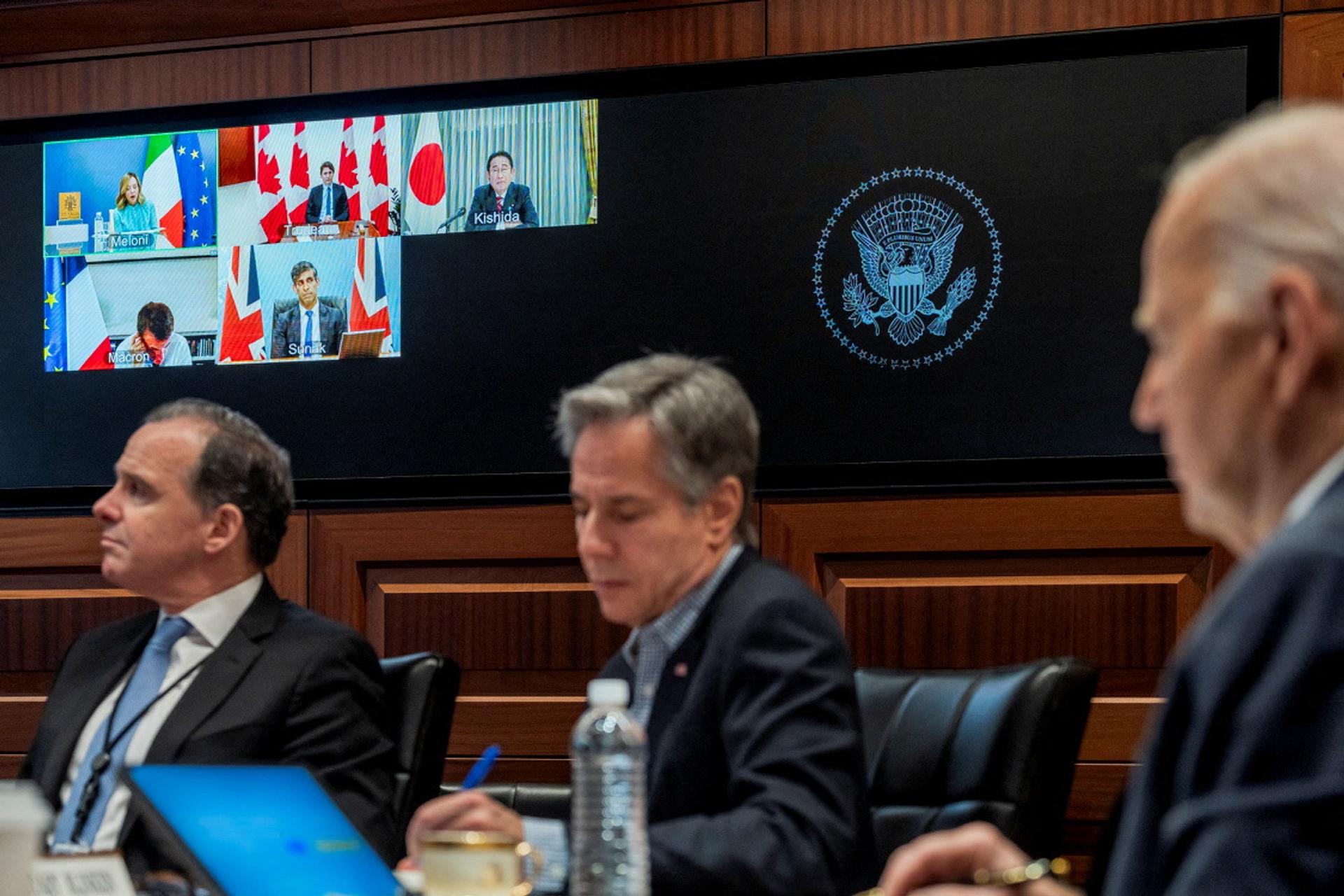Semafor Signals
Supported by
US urges caution in Israel response to Iran attack
Insights from Eurasia Group’s Ian Bremmer, The Intercept’s Murtaza Hussain, and Institute for the Study of War

The News
Israel is debating how to respond after Iran launched more than 300 drones and missiles against Israel on Saturday, marking what experts believe is Tehran’s first direct attack against the country.
Israel sustained minimal damage; its aerial defense system intercepted 99% of the projectiles with the help of the U.S. and other allies. Iran said Saturday it had “concluded” its offensive, but warned of a more severe response against any Israel retaliation.
Israeli war cabinet minister Benny Gantz said Sunday, “We will exact a price on Iran, in the manner and at the time that is right for us,” as the attack reignited fears of a larger regional war in the Middle East.
U.S. President Joe Biden and other global leaders have urged Israel to refrain from significant retaliation; Biden convened a meeting of the G-7 leaders Sunday, and the United Nations Security Council is also holding an emergency meeting.
The Israelis have made clear to their U.S. counterparts that they are not looking for a “significant escalation with Iran,” a senior Biden administration official told reporters Sunday, adding that Biden stressed to Israeli Prime Minister Benjamin Netanyahu the need to “think carefully and strategically about risks of escalation.”
“The president had a discussion about trying to slow things down and think through things,” the official said. The official also suggested the G7 would likely issue new coordinated sanctions on Iran in response to the attack.
Morgan Chalfant contributed to this report.
SIGNALS
US priority is to prevent Israel from escalating conflict
Iran’s offensive, which was easily intercepted and ended even before its impact was clear, was “choreographed to save face” after it blamed Israel for a deadly attack on its consulate in Syria, said Trita Parsi of the Quincy Institute for Responsible Statecraft. The Biden administration’s next steps are “to keep Israel from a direct military response on Iranian soil,” the Eurasia Group’s Ian Bremmer wrote on X. Regardless of how successful the Iranian strike was, “the escalatory cycle” could continue, the Atlantic Council’s Daniel Mouton cautioned, arguing that “Israel feels it must act while it enjoys a strong US force presence,” in the Middle East, before the Pentagon pulls its forces out and recommits them to the Indo-Pacific and Europe theaters.
Iran’s ‘strategic error’ will distract from Gaza
Iran’s “weak and ineffective attack” against Israel was a “strategic error,” The Economist’s Middle East correspondent Gregg Carlstrom wrote on X. It not only united Western and Arab countries in defending Israel, he wrote, but also created fears of a regional war, drawing attention away from Gaza’s humanitarian crisis. “Israel will portray itself as a victim,” he argued, stemming debates of restricting weapons sales to Israel. In one way, however, the offensive could succeed in creating resentment among Arab citizens against the Jordanian and Saudi governments: “The optics of doing zero while Gaza was annihilated and then intervening to defend Israel from a retaliatory strike by Iran will no doubt be taken note of by many,” The Intercept’s Murtaza Hussain argued.
US caught in dangerous ‘two-front’ conflict
The U.S. and its allies are now at the center of a “two-front proxy war” against Russia and Iran in the Ukraine and the Middle East, creating a “situation as dangerous as any the world has faced since the end of the Cold War,” David Rothkopf wrote for The Daily Beast. The Iranian attack “mirrors” Russian strikes against Ukraine that are able to penetrate U.S. and European defense systems, according to the Institute for the Study of War. The idea that “Iran is learning from the Russians and the Houthis” to develop effective strike packages, and the use of Iranian-designed drones by anti-U.S. actors, shows that the U.S. and its allies “face an increasingly interconnected group of adversaries helping one another and learning from one another,” the institute wrote.
